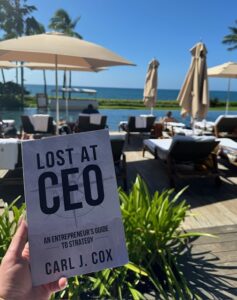|
Authors: why did you write *your* book?
Did you want to…
- Build an audience
- Earn money
- Share your expertise
- Attract leads
- Become famous
- Something else?
Whether you’re a fiction author or a business owner looking to share your message with the world…
None of these reasons end up being the most important.
Authors — and business owners — write books for all kinds of reasons.They want to build an audience, earn money, share their expertise, attract leads, or maybe even try to become famous. But one of the most important things that happen during the book-writing process is the *internal* transformation. And that’s what our guest this week is an expert at leading people through.
Dr. Kent Gustavson is a prize-winning writer, entrepreneur, and musician, who has published hundreds of books and worked with thousands of authors on achieving their goals.
Tune into the full conversation for more about the ghostwriting process, what makes a good ghostwriter (and why they should be similar to therapists), the benefit of writing with a small audience in mind, the big mistake that many first-time authors make, and a lot more.
As our podcast and blog are free for you, here is the link to share with someone else to sign up.
Andy Takata I Strategic planning in government: Lessons from a city manager
Entrepreneurs and other business leaders: what if I told you we could actually learn a lot about strategic planning from … the public sector?
(Yes, that means government!)
I promise, not all government strategic planning involves bloated timelines or budgets. And there are important lessons we can learn and apply to the private sector.
My next guest on the Measure Success Podcast is someone who has a lot to teach in this arena.
Andy Takata has worked as a city manager and has over 21 years of experience with three full-service cities and two contract cities. He’s worked in economic development, planning, recreation, development, and municipal-operated water, wastewater, and electrical utilities.
Tune into the full conversation at the link below or wherever you get your podcasts for more on:
- Some of the differences in effective strategic planning for the private sector vs the public sector
- How to avoid getting distracted by “shiny objects” when you already have a set plan (plus the potential benefits of noticing those shiny objects)
- Andy’s experience officiating water polo at the Olympics
- And a lot more!
As our podcast and blog are free for you, here is the link to share with someone else to sign up. |







